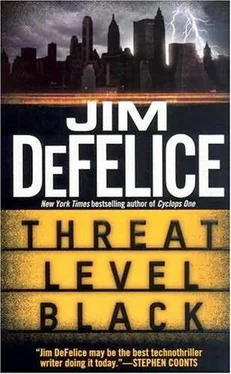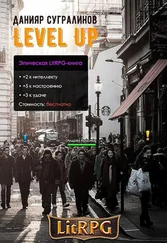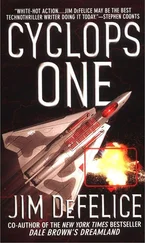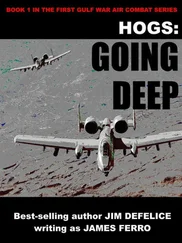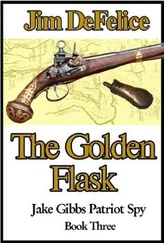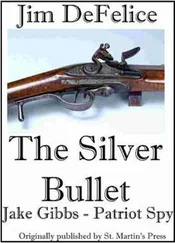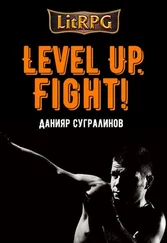A new era for Asia. Or more precisely, the foundation of a new era for Asia.
Japan could now safely remain on the pacifist course America had steered for it at the end of World War II. That in turn reduced the pressure on China to expand its military capacity, at least in the short term. Naturally the President had not put it so baldly, speaking only of peace and economic opportunity.
Those were the ultimate goals, and they were achievable as long as America retained its power in the region. There were many in this hall-too many-who did not understand or fully appreciate that; they looked at America ’s military and economic might as potentially evil things. They did not completely understand the U.S, its historic perspective and foundation. But then, they could hardly be blamed for that: Many of the people in Congress didn’t understand it.
History wasn’t taught in the schools anymore, Blitz lamented to himself as he smiled his way past several African delegates. Kids didn’t even know the dates of the American Revolution, let alone the Korean War.
A waitress passed nearby, offering a plate of Thai shrimp. Blitz declined: Spicy food at receptions always gave him heartburn.
A buzz at the other end of the hall indicated that the President had changed his mind and decided to attend after all. Blitz took a step toward him but found his way blocked by the Chinese representative to the UN. Xi Hiang was too important to duck; Blitz bowed his head and greeted the man properly.
“Peace, then?” asked Xi.
“Peace, yes,” said Blitz.
“ Korea is an interesting country,” said Xi, still speaking like a sphinx. Much like Blitz, Xi had an academic as well as government background, and the national security advisor waited for the lecture about history or at least a remark in that direction. But Xi said nothing else, and Blitz was moved to ask if his country was afraid of peace, aware that he was being provocative.
“Afraid?” Xi spoke English as well as Blitz but he said the word as if he did not understand the meaning.
“Afraid of the future?” prompted Blitz, trimming back the question slightly. “The uncertainty.”
“One should never be afraid of the future,” said Xi. “For it comes of its own. As for peace…”
An aide tapped the UN representative on the arm, and Xi turned before finishing. Blitz, too, was interrupted: France ’s UN representative told him she thought the President had done very well.
“I’m going to stay in New York this afternoon and into the evening,” the President told Blitz a few minutes later. “We can sneak over to the NCAA championships.”
“Presidents can’t sneak anywhere.”
“Relax, Doc. The IBM box has already been reserved, and we have Secret Service people flanking it. You just don’t want to see Syracuse win,” added the President. “Come over with us. Take the night off.”
“I have a pile of work.”
“State will be there. And I think Claussen from the CIA.”
The President was teasing him: He often joked that if he wanted Blitz somewhere, all he had to do was invite his rivals. Obviously the President was feeling good about the speech and Korea -and maybe even the basketball game.
“Oh, I suppose I can go back later with you,” said the national security advisor.
“Who says there’s room on the plane?” said the President before turning away.
Fisher left the interrogation room as quickly as he could, striding down the caged hallway to the small observation area. Identity confirmed, he was searched again before being allowed out.
Fisher checked his cigarette pack when the guard handed it back to him with his weapons: You just never knew about the ethics of people connected with the prison system.
“It’s going to be tonight,” said Fisher as he counted.
“What?”
“It’ll be at the basketball game. The championship.”
“What is?”
“Whatever they’re planning.”
“How do you know they’re planning anything?”
“Because they know less about college basketball than you do.” His cigarettes counted, Fisher put one in his mouth and lit up. “Call off the game.”
“Oh, yeah, right. You’re talking about the NCAA championships here, Andy. New York worked for years to get this, to bring them to the Garden. You’re out of your mind.”
“Faud left the bomb. That tells us two things: One, he’s not back in Yemen; two, time is running out. I thought it was an early-warning system, but I’m wrong: It’s a diversion.” Fisher took a long drag on the cigarette, striding out to the gangplank that led back to land. It was a gorgeous New York day-sun high in the sky, the odor of dead fish on the wind-but he didn’t stop to notice.
“We got their sarin,” protested Macklin.
“Maybe we didn’t get it all. I’m telling you, you have to stop that game.”
“The security tonight is going to be crazy,” said Macklin. “Half of New York will be locked down. They’ll never get close.”
“The E-bomb,” said Fisher.
“They have it?”
“I don’t know.”
Fisher thought about that as they reached the car. “We have to get the police to stop and search every flower truck in Manhattan. Anything that looks like the ones taken from Pete’s Florist.”
“Man, you’re reaching.”
“I have a thing for roses,” said Fisher, sliding into the car and taking out his sat phone.
Howe was just thinking of leaving the office early when his secretary buzzed him to say he had a call.
“I think I’ll deal with it tomorrow,” he told her.
“It’s somebody named Andy Fisher,” said the secretary. “He said it was important.”
Howe punched the button on his phone.
“I figured it out,” Fisher said. “They’re going to set the E-bomb off in New York tonight.”
“What?”
“Somewhere around eight o’clock. Maybe a little after. By my watch that’s four hours. I have this theory, but it doesn’t have a lot of proof.”
“Share it,” said Howe.
“The Korean is pissed about us beating the crap out of him, so he hooks up with these crazies here. I don’t know whether he sells them a bomb or is going to set it off himself, but it’s hooked into this terrorist cell of assholes with sarin gas. Maybe they got the sarin from him, too, I don’t know.”
“How do you know there’s an E-bomb?” asked Howe.
“Because one of my suspects, the one I can’t find, has night-vision goggles and an injector to ward off the effects of sarin gas. The only thing I don’t have totally worked out is how the bomb goes off, because the tech people I talked to say it’s got to explode in the air. Or that’s the best thing or something; I forget the details.”
“The UAV?”
“Yeah, that’s what I was thinking.”
Howe stood up from his seat. You could use the rocket pack to launch the UAV like a missile. Once launched, the engines would take over.
“You sure about all of this?” Howe asked Fisher.
“Of course not. Listen, we have to keep air traffic away from New York, and we have to look for a UAV. I have to talk to a million people, and most of them think I’m a pain in the ass, so it’s going to take a while.”
“Have you talked to the Air National Guard?”
“My task force guy will, but I don’t know how serious they’re going to take him. I don’t even take him seriously,” said Fisher. “But you’ve got a ton of pull, right?”
“I’ll do what I can,” said Howe.
“I’m counting on that,” said Fisher.
Howe pressed the button to talk to his secretary. “I need to get ahold of the unit responsible for air traffic over New York,” he told her. “I want to talk to the commander personally, right away. And then I need to have one of our planes at Andrews readied for a flight: Iron Hawk. You can get me the numbers I need, right?”
Читать дальше
